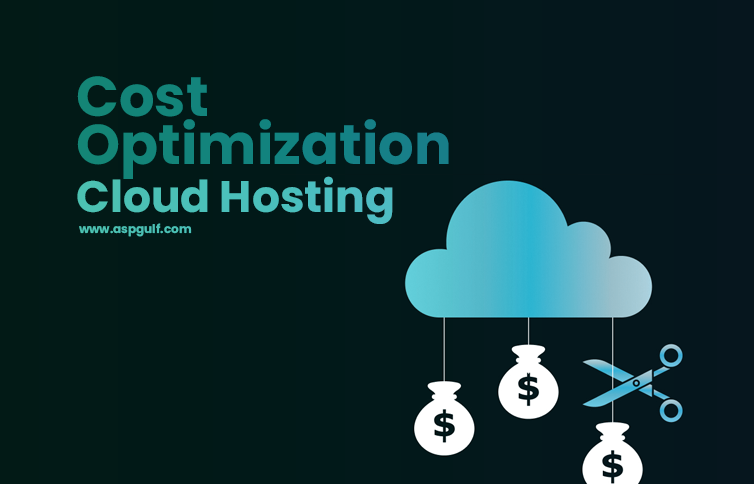Introduction: The Cloud Revolution in Enterprise Storage
In today’s fast-paced digital landscape, businesses are constantly seeking ways to streamline their operations, improve efficiency, and stay ahead of the competition. One area that has seen significant transformation in recent years is enterprise storage. The advent of cloud technology has revolutionized how companies store, manage, and access their data. Enter enterprise cloud-based storage – a game-changer for organizations of all sizes.
As an IT professional, IT manager, procurement specialist, or business owner, you’ve likely heard about the benefits of cloud storage. But what exactly is enterprise cloud-based storage, and how can it benefit your organization? In this comprehensive guide, we’ll explore the ins and outs of this technology, its advantages, potential challenges, and how to choose the right solution for your business needs.
What is Enterprise Cloud-Based Storage?
Enterprise cloud-based storage, also known as enterprise cloud data storage or enterprise file storage, is a service that allows businesses to store and manage their data on remote cloud server accessed via the internet. Unlike traditional on-premises storage systems, cloud storage provides a flexible, scalable, and cost-effective solution for companies looking to optimize their data management processes. Additionally, enterprise cloud-based storage often incorporates Data Replication to enhance data availability, redundancy, and disaster recovery capabilities, ensuring business continuity. This aligns with the public cloud computing definition, which emphasizes shared resources, scalability, and accessibility over the internet.
Key Features of Enterprise Cloud-Based Storage
- Scalability: Easily increase or decrease storage capacity based on your needs
- Accessibility: Access data from anywhere with an internet connection
- Security: Advanced encryption and security measures to protect your data
- Redundancy: Multiple copies of data stored across different locations for improved reliability
- Cost-effectiveness: Pay-as-you-go models that eliminate the need for large upfront investments

Cloud Hosting
Cloud Hosting – Scalable, Secure, and Cost-Effective! Get Started Today!
The Evolution of Enterprise Storage
To truly appreciate the value of enterprise cloud-based storage, it’s essential to understand how we got here. Let’s take a brief journey through the history of enterprise storage:
1. The Era of Physical Storage
In the early days of computing, businesses relied on physical storage devices like hard drives, tape drives, and floppy disks to store their data. While these solutions were adequate for their time, they had significant limitations in terms of capacity, speed, and reliability.
2. The Rise of Network-Attached Storage (NAS) and Storage Area Networks (SAN)
As businesses grew and their data needs expanded, network-attached storage (NAS) and storage area networks (SAN) emerged as more robust solutions. These technologies allowed for centralized storage management and improved data access speeds. However, they still required significant upfront investments and ongoing maintenance.
3. The Cloud Revolution
The advent of cloud computing brought about a paradigm shift in how businesses approached storage. Cloud storage services offered unprecedented flexibility, scalability, and cost-effectiveness, paving the way for enterprise cloud-based storage solutions we see today.
Benefits of Enterprise Cloud-Based Storage
Now that we’ve covered the basics, let’s dive into the numerous advantages that enterprise cloud-based storage offers to businesses:
1. Cost Savings
One of the most significant benefits of cloud storage is its cost-effectiveness. By moving to a cloud-based solution, businesses can:
- Eliminate the need for expensive hardware purchases
- Reduce maintenance and upgrade costs
- Optimize IT staff resources
- Pay only for the storage they need with flexible pricing models
2. Scalability and Flexibility
Cloud storage allows businesses to easily scale their storage capacity up or down based on their needs. This flexibility is particularly valuable for:
- Seasonal businesses with fluctuating storage requirements
- Rapidly growing companies that need to quickly expand their storage capacity
- Organizations looking to optimize their storage costs by adjusting capacity in real-time
3. Improved Collaboration and Productivity
Enterprise cloud-based storage facilitates better collaboration among team members by:
- Providing easy access to files from any location
- Enabling real-time file sharing and editing
- Offering version control to track changes and prevent conflicts
- Supporting mobile access for on-the-go productivity
4. Enhanced Data Security
Contrary to popular belief, cloud storage can often provide better security than on-premises solutions. Through robust cloud security management practices, enterprise cloud storage providers offer:
- Advanced encryption for data in transit and at rest
- Regular security updates and patches
- Compliance with industry standards and regulations
- Multi-factor authentication and access controls
5. Disaster Recovery and Business Continuity
Cloud storage plays a crucial role in disaster recovery and business continuity planning by:
- Automatically backing up data to multiple locations
- Providing quick data restoration in case of system failures
- Ensuring business operations can continue even if local systems are compromised
Challenges and Considerations
While enterprise cloud-based storage offers numerous benefits, it’s important to be aware of potential challenges and considerations:
1. Data Transfer Speed
The speed of data transfer can be a concern, especially for businesses dealing with large files or high-volume data transfers. Factors that can affect transfer speeds include:
- Internet connection quality and bandwidth
- Distance from the cloud provider’s data centers
- Type of data being transferred
2. Compliance and Data Sovereignty
Depending on your industry and location, you may need to adhere to specific regulations regarding data storage and management. Consider:
- Data residency requirements
- Industry-specific compliance standards (e.g., HIPAA, GDPR)
- Data access and control policies
3. Vendor Lock-in
Migrating large amounts of data between cloud providers can be challenging and time-consuming. To avoid vendor lock-in:
- Carefully evaluate providers before committing
- Consider multi-cloud or hybrid cloud strategies
- Ensure your data is easily portable between platforms
4. Cost Management
While cloud storage can be cost-effective, it’s essential to monitor and manage costs to avoid unexpected expenses. Key considerations include:
- Understanding pricing models and potential hidden fees
- Implementing cloud cost optimization strategies
- Regularly reviewing and adjusting storage allocations
Choosing the Right Enterprise Cloud-Based Storage Solution
Selecting the right cloud storage solution for your business is crucial. Here are some factors to consider when evaluating providers:
1. Storage Capacity and Scalability
- Assess your current and future storage needs
- Evaluate the provider’s ability to scale seamlessly
- Consider options for both increasing and decreasing storage capacity
2. Performance and Reliability
- Review the provider’s service level agreements (SLAs)
- Check for uptime guarantees and performance metrics
- Assess the provider’s track record for reliability and customer support
3. Security Features
- Evaluate encryption methods and access control options
- Check for compliance certifications relevant to your industry
- Assess the provider’s security incident response procedures
4. Integration Capabilities
- Ensure compatibility with your existing systems and workflows
- Look for APIs and integrations with popular business applications
- Consider the ease of migration from your current storage solution
5. Pricing and Cost Structure
- Compare pricing models (e.g., pay-as-you-go, tiered pricing)
- Evaluate potential cost savings compared to on-premises solutions
- Consider long-term costs and potential for optimization
Implementing Enterprise Cloud-Based Storage: Best Practices
Once you’ve chosen a cloud storage solution, follow these best practices for a successful implementation:
1. Develop a Clear Migration Strategy
- Assess your current data and storage infrastructure as part of a comprehensive cloud infrastructure management strategy.
- Prioritize which data to migrate first
- Create a timeline and allocate resources for the migration process
2. Implement Strong Security Measures
- Use multi-factor authentication for all user accounts
- Implement role-based access controls
- Regularly review and update security policies
3. Train Your Team
- Provide comprehensive training on the new system
- Create documentation and user guides
- Offer ongoing support and resources for employees
4. Monitor and Optimize Performance
- Regularly review storage usage and costs
- Implement data lifecycle management policies
- Continuously assess and optimize your storage allocation
5. Plan for the Future
- Stay informed about new features and updates from your provider
- Regularly reassess your storage needs and adjust accordingly
- Consider implementing a hybrid or multi-cloud strategy for added flexibility

Power of Private Cloud
Explore secure, scalable, and customizable solutions with private cloud. Take control of your IT infrastructure and elevate your business operations today!
The Future of Enterprise Cloud-Based Storage
As technology continues to evolve, we can expect to see exciting developments in the world of enterprise cloud storage. Some trends to watch include:
- Artificial Intelligence and Machine Learning integration for smarter data management
- Edge computing solutions for improved performance and reduced latency
- Increased focus on sustainability and energy-efficient storage solutions
- Enhanced data analytics capabilities for better insights and decision-making
Conclusion: Embracing the Cloud Storage Revolution
Enterprise cloud-based storage has transformed the way businesses manage and store their data. By offering unparalleled flexibility, scalability, and cost-effectiveness, cloud storage solutions—including services like Office 365 and Microsoft 365 Hosting—enable organizations to focus on their core competencies while leaving the complexities of data management to the experts.
As an IT professional, IT manager, procurement specialist, or business owner, embracing cloud storage can give your organization a competitive edge in today’s data-driven world. Whether you’re migrating to Office 365 for seamless collaboration or leveraging Microsoft 365 Hosting for enhanced security and scalability, these solutions are key to modern IT infrastructure.
By carefully evaluating your needs, choosing the right provider, and implementing best practices, you can harness the power of enterprise cloud-based storage to drive innovation, improve collaboration, and secure your company’s digital future.
And as cloud technologies evolve, many businesses are also exploring new options for web hosting. Is VPS the Future of Web Hosting? Discover the Benefits Today! From performance to customization, VPS offers compelling advantages worth considering alongside your cloud strategy.
Remember, the journey to the cloud is unique for every organization. Take the time to assess your specific needs, consult with experts, and develop a strategy that aligns with your business goals. With the right approach, enterprise cloud-based storage—supported by modern tools like Office 365 and Microsoft 365 Hosting—can be a powerful tool in your digital transformation toolkit, helping you navigate the challenges and opportunities of the modern business landscape.



